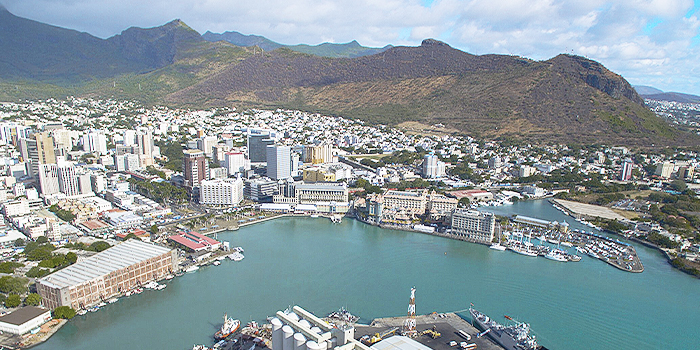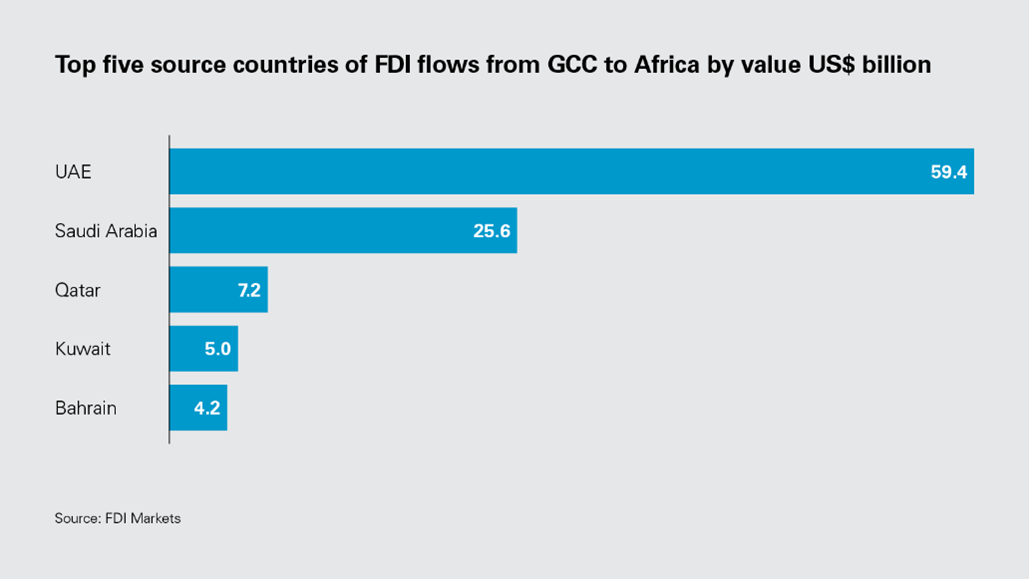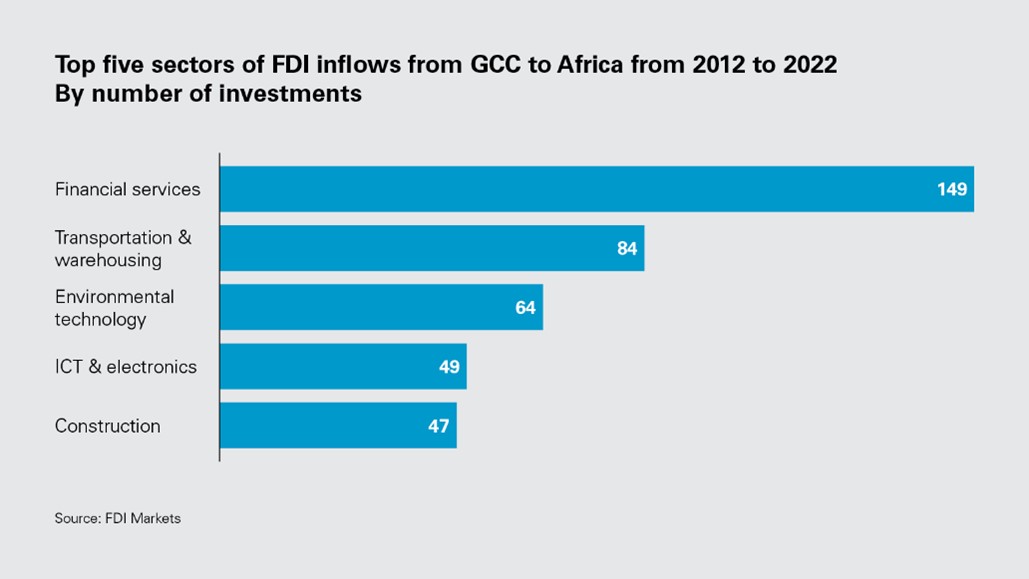Africa is unstoppable – with inbound assistance from Mauritius and outbound from the UAE

“Africa is unstoppable. Africa is an essential part of global business and a major investment destination. Africa includes some of the world’s fastest growing economies. And Africa has more, much more, to offer. Every sector of the African economy is growing – from manufacturing to agriculture, from services to finance,” said UN Secretary-General António Guterres.
Sub-Saharan Africa alone is now home to more than one billion people, half of whom will be under 25 years old by 2050. Addressing delegates at the opening of the Global Africa Business Initiative (GABI) in New York last September, Guterres said this vibrant, young population represented a dynamic workforce and a massive consumer and business market. And the Africa Continental Free Trade Area Agreement (AfCFTA) would further accelerate investment and trade opportunities.
The AfCFTA is the continent’s most ambitious integration initiative. It opened on 1 January 2021 and is now the world’s largest free trade area encompassing all but one (Eritrea) of Africa’s 55 countries. It should be an economic game changer because trade integration across the African continent has long been limited by outdated border and transport infrastructure and a patchwork of differing regulations across dozens of markets, making it more expensive for countries to trade with near neighbours than countries much further afield.
Intra-African exports were 16.6% of total exports in 2017, compared with 68.1% in Europe, 59.4% in Asia, 55% in America and 7% in Oceania, according to the United Nations Conference on Trade and Development (UNCTAD). Intra-African trade, defined as the average of intra-African exports and imports, was around 2% during the period 2015–17. The share of exports from Africa to the rest of the world ranged from 80% to 90% in 2000 to 2017 – only Oceania had a higher export dependence on the rest of the world in that period.
In a 2020 report, the World Bank estimated that by 2035, real income gains from full implementation of AfCFTA could be 7%, or nearly USD450 billion. By 2035, the volume of total exports would increase by almost 29% relative to business as usual. Intra-continental exports would increase by more than 81%, while exports to non-African countries would rise by 19%. The Bank also predicted that the AfCFTA could contribute to lifting an additional 30 million people from extreme poverty and 68 million people from moderate poverty.
This year saw the first shipment of locally made car batteries and tea from Kenya to Ghana under the new zero-tariff arrangements, as well as the agreement of the investment protocol. Next year will see the conclusion of the competition protocol, which will further harmonise investment policies across the continent, and possibly more. This will create new opportunities for smart investors.
The AfCFTA also presents significant opportunities for increased foreign direct investment (FDI) into the region in the future. By reducing tariff and non-tariff barriers to trade, investors in one AfCFTA member state could have access to an expanded market for goods and services across Africa.
In a follow-up report published in June 2022, the World Bank listed benefits from the expected increase of FDI expected to accrue from the agreement. Under an ‘AfCFTA FDI broad scenario’, it predicted that Africa could see an increase of 111% in FDI, further boosting real income gains in Africa to about 8% in 2035. And if the agreement expands from trade in goods and services to harmonising policies on investment, competition, e-commerce, and intellectual property rights – an ‘AfCFTA FDI deep scenario’ – the Bank predicted an increase in FDI of 159%, with income gains up to 9%, by 2035.
So, what are best routes to invest into and out of this massive African market? “Africa offers copious human and natural resources. Now that it is also home to the world’s largest free trade area, the continent is creating an entirely new development path. But protecting investments going in and out of Africa is still not without its own challenges,” said Ashley Yates, Corporate Advisory & Structuring Practitioner at Sovereign Trust (Mauritius).
“Having been based in both Sovereign’s Dubai and Mauritius offices over the last seven years, it is clear to me that, for foreign investors, the tax benefits and banking stability provided by Mauritius and the UAE represent the best business practice to support trade going in and out of the continent.”
Inbound FDI to Africa
For inbound FDI, the clear front-runner is Mauritius, which has ratified the AfCFTA agreement and serves as the preferred cross-border investment hub in the African region. Mauritius ranked first in Africa and 13th worldwide in the World Bank’s 2020 Doing Business Report, and once again ranked as the most innovative country in Sub-Saharan Africa on the World Intellectual Property Organisation’s (WIPO) Global Innovation Index 2022, which assesses innovation levels across 130 economies worldwide.
Mauritius has positioned itself as a favourable jurisdiction for facilitating FDI. Global Business Companies (GBCs) are tax resident in Mauritius and therefore have full access to Mauritius’s network of 45 Double Taxation Agreements (DTAs) – including 17 African countries as well as India, China, the UK and Germany – with a further eight DTAs awaiting ratification, four awaiting signature and 20 currently under negotiation.
The Corporation Tax rate for company profit is 15%, except for companies engaged in the exports of goods, in which case the tax rate is 3%. Companies can also benefit from an 80% partial exemption on certain specified income – including foreign dividends and interest – subject to carrying out ‘Core Income Generating Activities’ in Mauritius. This means that, with careful planning, the effective tax rate on these income streams will be 3% as well. Local dividends are fully exempt from tax in Mauritius, capital gains realised are treated as exempt income in Mauritius and there is no withholding tax on dividends paid by Mauritian resident companies.
Outbound FDI from Africa
“For outbound FDI, where previously relations between the Gulf states and the African continent tended to be shaped by short-term economic goals, the dynamics – propelled by the COVID pandemic, food security and diversification strategies – have been shifting toward deeper, longer-term and mutually beneficial commitments,” said Nicholas Cully, Sovereign Group Sales Director.
“The move towards developing ongoing, sustainable trade is demonstrated by recent diplomatic and policy-driven decisions. Except for Saudi Arabia, all GCC member states have now signed bilateral investment treaties (BITS) with African countries.“
The UAE, in particular, is seeking to strengthen international ties with countries around the world to build on its position as a global trade and logistics hub. To date it has signed BITS with: Tunisia, Egypt, Morocco, Sudan, Algeria, Mozambique, Benin, Kenya, Mauritania, Comoros, Mauritius, Senegal, Nigeria, Equatorial Guinea, Ethiopia, Burundi, Angola, Uganda, Mali, Zimbabwe, Chad, Niger, Gabon, South Sudan, Gambia, Guinea-Bissau, Sierra Leone, Zambia, the Democratic Republic of Congo and Côte d’Ivoire.
Last summer, the UAE and Kenya issued a joint statement announcing their intention to negotiate a comprehensive economic partnership agreement (CEPA). This is designed to increase the overall value of non-oil bilateral trade between the UAE and Kenya, which rose to USD2.3 billion last year. CEPAs are intended to offer enhanced market access, lower or eliminated tariffs, simpler customs procedures, clear and transparent rules and rules-based competition. Since 2021, the UAE has signed CEPAs with India, Israel and Indonesia.
As a result, the UAE has emerged as one of the largest investors into Africa among the GCC states and is now, after China, Europe and the US, the fourth-largest investor globally into Africa. Between January 2016 and July 2021, the UAE invested USD1.2 billion into sub-Saharan Africa, representing 88% of the GCC total over that period.

The UAE is considered a low tax jurisdiction – it currently operates with 0% corporate tax and, as from June, is to introduce a highly competitive 9% corporate tax rate – and it is considered a regional and world leader for trade and freight forwarding of good and services.
Private companies are also seeing the benefits of the strengthening relationships, with African businesses increasingly choosing the UAE as a base of operations. Over 1,600 new African member companies have registered with the Dubai Chamber of Commerce since October 2021, demonstrating the opportunities for such companies to use the UAE as a base for outbound engagement and a platform for utilising global opportunities for export.

“As the above graphic shows, the largest portion of the FDI flowing from the GCC to Africa is within the financial services sector. With careful structuring the use of Mauritius and UAE products can greatly assist FDI in and out of Africa in many ways,” said Ashley. “Sovereign has been assisting foreign investors going in and out of the continent for over 20 years and is well placed to support and provide structures for foreign investors to ensure their investments are protected.”
